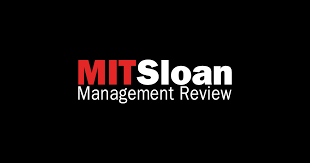
Weekly Business Insights from Top Ten Business Magazines | Week 325
Personal Development, Leading & Managing Section | 2
Extractive summaries and key takeaways from the articles curated from TOP TEN BUSINESS MAGAZINES to promote informed business decision-making | Since September 2017 | Week 325 | December 1-7, 2023

The Emotional Landscape of Leadership
By Benjamin Laker et al., | MIT Sloan Management Review | December 07, 2023
Extractive Summary of the Article | Listen
As new leaders climb the organizational hierarchy, they face both the joys of success and the burden of failure, and the significance of their decisions is magnified in their more visible role.
Underlying these challenges is the essential yet often overlooked domain of emotional regulation, which stands out as a key determinant in the efficacy of leadership. Common trends and insights that inform the six best practices are:
- Understanding the role of self-awareness. The linchpin to effective emotional regulation in leadership is self-awareness. Leaders should routinely engage in introspection, asking themselves, “How do I feel right now?” and, “Is this emotion serving or hindering my leadership?”
- Enhancing vision through diverse feedback. A leader’s journey is not walked alone; feedback from trusted individuals can provide invaluable waypoints. Building a circle of mentors, peers, and even receptive subordinates allows leaders to gain insights beyond their immediate perspectives.
- Establishing boundaries for sustainable leadership. Assuming a leadership role is accompanied by heightened responsibilities. However, perpetually being on call can lead to burnout and diminished effectiveness. Setting clear boundaries, both for themselves and their teams, ensures that leaders have dedicated moments to decompress, reflect, and return with renewed vigor.
- Embracing authenticity — the strength of vulnerability. The mantle of leadership often comes with misplaced expectations of stoicism or an emotional facade, but true leadership strength can be found in authenticity and vulnerability. By acknowledging personal feelings and judiciously sharing them, leaders can bridge gaps, foster deeper connections, and engender trust within their teams.
- Having extracurricular coping strategies — the key to balance. As leadership intensifies, the need for balance becomes paramount. Developing coping mechanisms outside the professional sphere is not a luxury but a necessity. Whether it’s through physical activity, putting pen to paper in a journal, engaging in creative outlets, or cherishing moments with loved ones, these pursuits offer an essential emotional reset.
- Practicing breathing and mindfulness — anchors in chaos. In the fast-paced world of decision-making, the solution sometimes lies in simplicity: taking a moment to breathe. A single deep breath can provide immediate clarity amid chaos. Incorporating mindfulness and brief meditation practices into the daily routine establishes a bedrock of calm. By anchoring themselves in the present, leaders can tackle complex scenarios without being consumed by overwhelming emotions.
Every emerging leader should invest in emotional intelligence training and regularly engage in self-reflection in order to master their emotions and thereby lead with clarity and conviction. Consider taking these actions, starting today: regularly reflect, actively listen to varied voices, define digital work boundaries, discover your personal reset mechanism, and commence with calming breath work.
3 key takeaways from the article
- As new leaders climb the organizational hierarchy, they face both the joys of success and the burden of failure, and the significance of their decisions is magnified in their more visible role. Underlying these challenges is the essential yet often overlooked domain of emotional regulation, which stands out as a key determinant in the efficacy of leadership.
- Common trends and insights that inform the six best practices are: understanding the role of self-awareness, enhancing vision through diverse feedback, establishing boundaries for sustainable leadership, embracing authenticity — the strength of vulnerability, having extracurricular coping strategies — the key to balance, and practicing breathing and mindfulness — anchors in chaos.
- Every emerging leader should invest in emotional intelligence training and regularly engage in self-reflection in order to master their emotions and thereby lead with clarity and conviction. Consider taking these actions, starting today: regularly reflect, actively listen to varied voices, define digital work boundaries, discover your personal reset mechanism, and commence with calming breath work.
(Copyright of the article lies with the publisher)
Topics: Leadership, Emotional Intelligence, Teams
